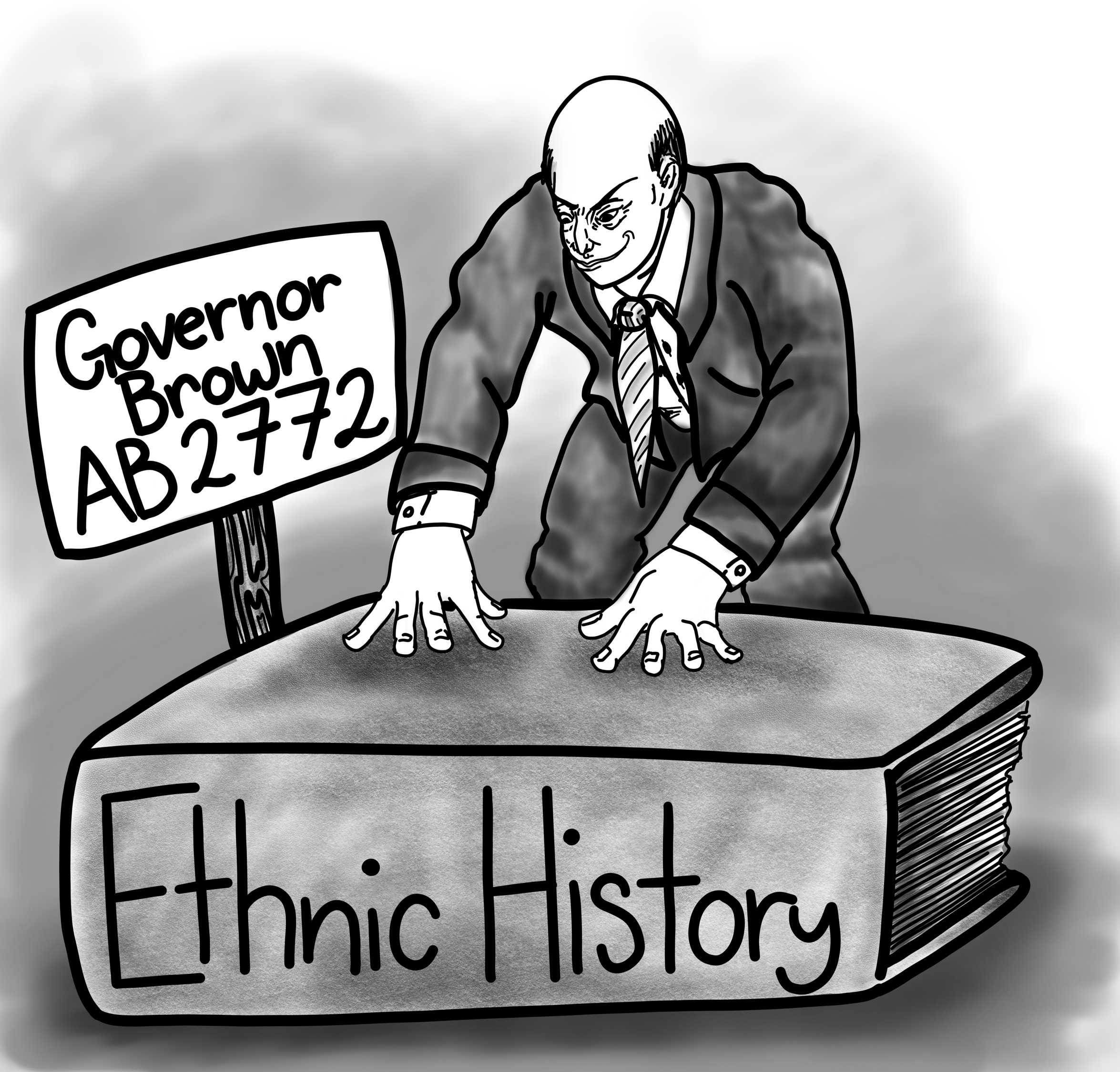By Diego Lomeli

It goes without saying that ethnic studies courses’ reputation has been and still is accompanied by controversy.
The legislation AB 2772 was designed to incorporate ethnic studies courses into the California education system as a high school graduation requirement. The bill was proposed in February and was later rejected in September.
As of press time, ethnic studies courses are not yet a graduation requirement within our education system. It was suggested by Gov. Jerry Brown in his Sept. 30 veto statement, that high school students are already overburdened with an unreasonable amount of schoolwork, adding that yet another requirement would simply be unreasonable.
“The governor’s debate, is that high school students are already overburdened with requirements, so why impose another one? But then the question becomes, why wouldn’t you require them to learn about their cultural history? They’re required to learn US history, and this is a compliment to that,” Franklin Pérez, an ethnic etudies doctorate student at UC Riverside said.
Having taken a Chicano studies class my senior year of high school, I can recall that the majority of the content taught throughout the course revolved around cultural history and analytical reading, both of which, are essential aspects of education that are already taught in our schools.
Having this understanding, I agree with Pérez’s argument, although there is more value in teaching cultural history than we purport there to be.
Providing students with an immensely diverse catalog of cultures to learn about has been proven to influence the rising attendance and academic performance statistics among high school students of color, and although such curricula proves itself effective, various individuals still express their concerns for the potential self segregating and victimized attitudes it could inflict onto young students.
Regardless of the criticism these courses have received, there’s a great and urgent relevant philosophy that the Ethnic Studies curriculum leaves its students with. It became evident to me upon observing an Ethnic Studies class myself, and while being able to talk with a few students currently enrolled in the class.
It’s a simple, but effective philosophy: the betterment of oneself leads to the betterment of your community.
Ethnic studies courses, above all, aim to empower students in a productive and pragmatic manner. The graphic nature of Chicano history has an effect on a student’s perception and interpretation of the traditional eurocentric history they’ve been taught in the past. Such content influences an inquisitive attitude among students; the kinds of attitudes often adopted by critical thinkers and innovators.
What’s more important than teaching the history itself, is teaching the history for the epiphanic effects it has on students.
Gustavo Flores, a chicano studies and English teacher at Norte Vista High School, argues that cultural history should be taught at the elementary and middle school levels in a way that creates a foundation for the cultural history classes that students will eventually take in high school.
“I think it’s perfect to tell the truth of what actually happened in the lower grades,” Flores said. “I think it has students question why their stories aren’t told.”
An early introduction to such a concept creates a foundation for students that provides them with the motivation they need to learn and help as much as they can.












